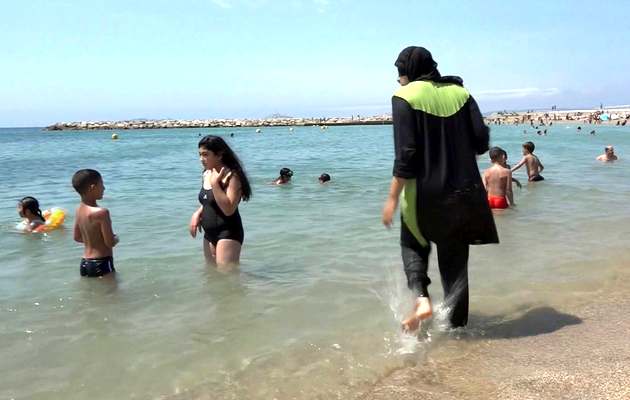French authorities in several cities in towns have banned the burkini, a full-body swimsuit worn by some Muslim women.
 Woman with burkini, Marsella / AP
Woman with burkini, Marsella / AP
The clothing - which combines "burqa" with "bikini" - leaves only the face, hands and feet on show.
A village mayor on the island of Corsica is the latest to outlaw them after a beach brawl between families of North African descent and local youths.
Witnesses say it began when the families didn't want photos taken.
The French cities of Cannes and Villeneuve-Loubet have also banned the burkini, arguing that the swimsuit defies French laws on secularism.
Secularism is the idea of strict separation of the government from religious institutions.
The idea is that people of different religions and beliefs are equal before the law.
The most well-known rules on secularism (known as laicite) were introduced back in 1905.
But in the 111 years since things have become pretty complicated.
The French still have certain Catholic public holidays but religious events, such as school nativity plays, are not allowed.
There are also lots of other rules prohibiting religious clothing.
The legal status of headscarves in schools was unclear for years but in 2004 French ministers approved a law banning all obvious religious symbols in schools - including Muslim headwear, Christian crosses and Jewish skullcaps.
In 2010 the French government hit the headlines again when it banned people wearing anything covering the whole face (including niqabs and other veils) in public places.
Critics have accused France of stopping freedom of religious expression and specifically targeting Muslims.
But some moderate Muslim leaders also back the ban as they see it as a stand against hardline versions of Islam.

Las opiniones vertidas por nuestros colaboradores se realizan a nivel personal, pudiendo coincidir o no con la postura de la dirección de Protestante Digital.
Si quieres comentar o